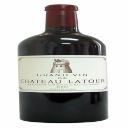Yahoo Answers is shutting down on May 4th, 2021 (Eastern Time) and beginning April 20th, 2021 (Eastern Time) the Yahoo Answers website will be in read-only mode. There will be no changes to other Yahoo properties or services, or your Yahoo account. You can find more information about the Yahoo Answers shutdown and how to download your data on this help page.
Trending News
Where can I find a dictionary of 19th century British English?
I'm working on a novel set in London in the late 1800's. Where can I find a dictionary, a British one, not American English, that would have the terms and words from that period? I don't want a modern dictionary since some of the words from the 1800's may have dropped out of circulation. I guess I need a British dictionary that was published at least no later than the first half of the 20th century. Any ideas?
Thank you for your help.
3 Answers
- Anonymous7 years agoFavorite Answer
You could use Samuel Johnson's Dictionary of the English Language. While it was published in 1755, most of the words would have still been in use 50 years later.
The OED wasn't published until almost 200 years later, in the 20th century.
There's a classical reprint of it available on Amazon, and one version available for download to Kindle.
- Anonymous7 years ago
You really need "Nuttals" or similar, of that period. Samuel Johnsons dictionary, although authoritative, is too early. You could try online for the first edition of the Oxford English dictionary, first published in many volumes over a period of several decades in the late 1800s/early 1900s, but be warned, it contains over a million words.
But you will be struggling if consulting any dictionary of that period, since some of the words it lists will have been obsoltete by the late 1800s, and only noted for the benefit of readers of earlier texts, novels, etc. Just as modern dictionaries list words which are no longer in daily use today.
Maybe have a quick look at the Sherlock Holmes detective novels. Even Dickens would be too early for late 1800s, as everyday language. Thre vwould also be even greater regional variations than there are today, so you need to think about what part of Britain your novel will be set in. Even today, I, as a southerner, find difficulty understanding some northerners. But the same might apply across the USA!



